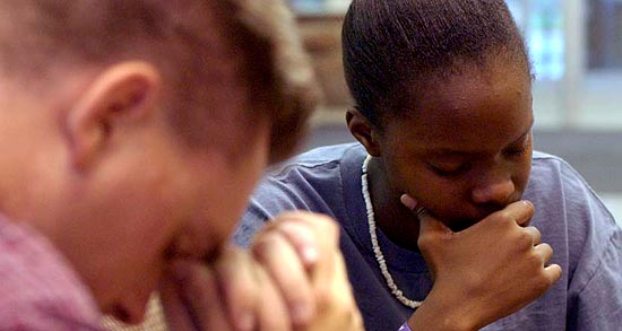The Greatness Of God Gives Us More Than We Can Imagine

Today’s first reading shows the greatness of God who is able to supply way above and beyond what we think we need. It is an exciting story of a man who was crippled from birth and who would be brought every day and placed before the temple so that he could beg. This is a story – a silent one at that – of people who cared; who cared enough about this man that they would take him every day to his ‘place of work’ – for want of a better term. You see, because of his state, this man had no means of earning an income. He had no other means of getting what he needed other than to beg for it; and what better place to seek alms than before the temple, where people went to worship their God. He could not stay there in the open all the time, and so he had to be carried by people who cared, and then removed at the end of the day.
The Bible tells us that when he – the crippled man – saw Peter and John about to enter the temple, he begged from them. But Peter looked intently at him and so did John. The words that followed communicated what the gaze was meant to. It was a look that came straight from the heart, the heart of God. A gaze that said, “my son, you are worth so much more than you think. You are worth so much more than people would have you believe. You are worth so much more than what you are asking for. In spite of your handicap my son, in spite of how others make you feel, I do love you my child and I want what is best for you.”
Peter said to the man, “Look at us,” and the bible says that he looked at them expectantly. The life of a beggar is a very difficult one; one that very often has to embrace abuse, insult, and humiliation. When Peter said to the man, ‘look at us,’ the cripple’s mind must have swung like a pendulum thinking, ‘ oh boy! I’m really going to get it now! But wait! Maybe they are rich. Maybe they are generous.’ But his reverie was interrupted when Peter said, ‘I have neither silver nor gold, . . . ’ The man must have been disappointed; his heart must have sunk, but Peter continued, ‘. . . but I will give you what I have: in the name of Jesus Christ the Nazarene, walk!’ Then, the Bible says, ‘Peter took him by the right hand and raised him up.’ We should note here also, that after his legs regained strength, he went with Peter into the temple praising and thanking God. Is this our attitude when God has done something for us, whether great or small? Do we praise and thank Him when it appears that our prayers are not answered, or when we have to wait for an extended period of time to see what we believe is the answer God is giving, or further yet when there is clear evidence that he answers our prayer? The right hand of God ushers us into a new life, new beginnings, filling us with a heart of gratitude even as we ponder the mysteries of the Easter Season.
The greatness of God graced the cripple with so much more than he expected. The greatness of our God gave him so much more than silver or gold. You see, had he received silver or gold, then he’d have to repeat the same process all over again being dependent on those who cared to pick him up and to bring to beg, and to take him back home at the end of the day. But the greatness of our God saw beyond what the man thought he wanted and saw what he needed – his dignity. By healing the man and allowing him to walk, the man’s dignity was given back to him.
Many of us when we pray, we approach God forgetting that He is a generous God; but He is a God who not only knows what is best for us, but who wants what is best for us and desires to give us what is best for us. He desires to give us an abundance of blessings far beyond what our minds can conceive.
|
The story continues by saying that “Everyone could see him walking and praising God, and they recognized him as the man who used to sit begging at the Beautiful Gate of the Temple.” When God touches our lives, we can never be the same. When God enters into our circumstances, our lives are transformed, and we too will be recognized as the ‘person who used to . . . . ;‘ the person God intended us to be. |





